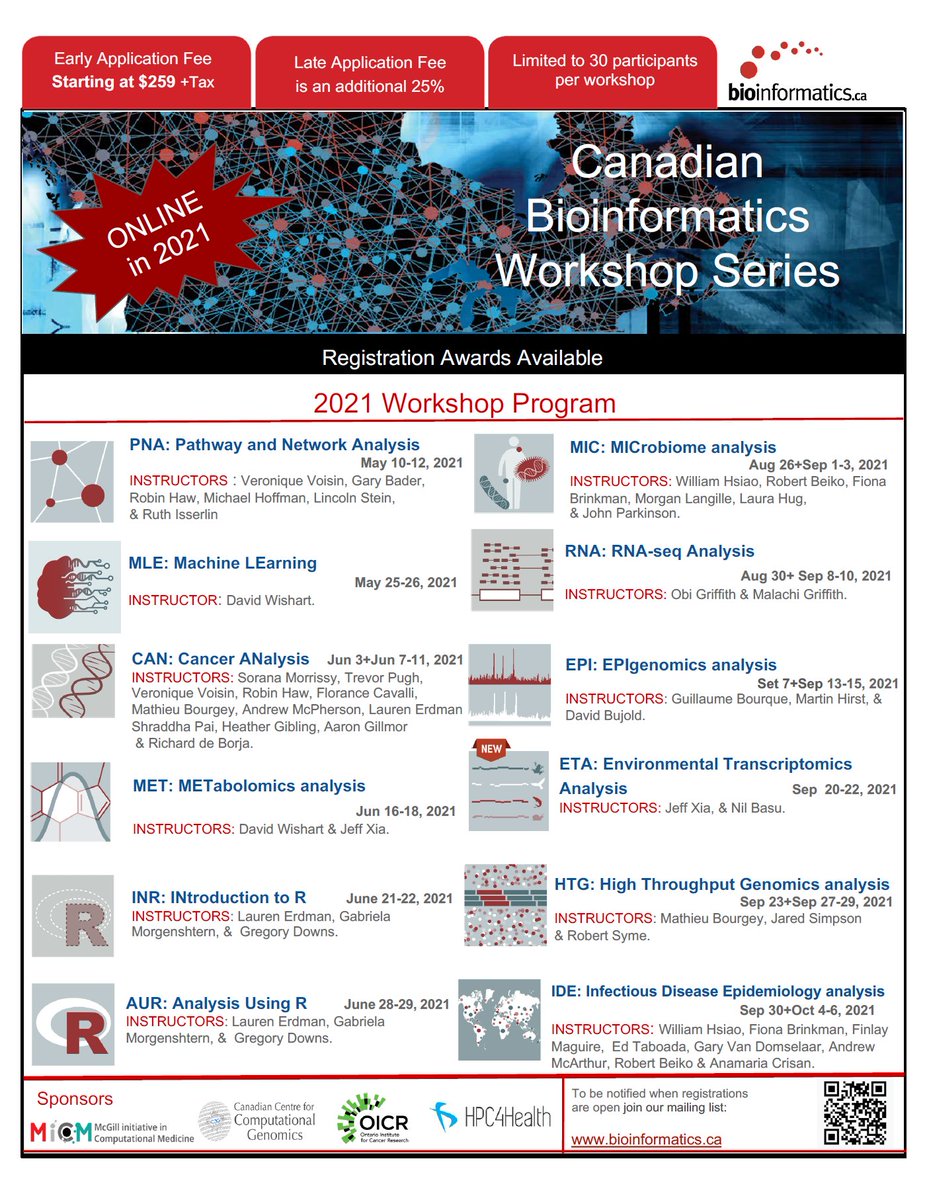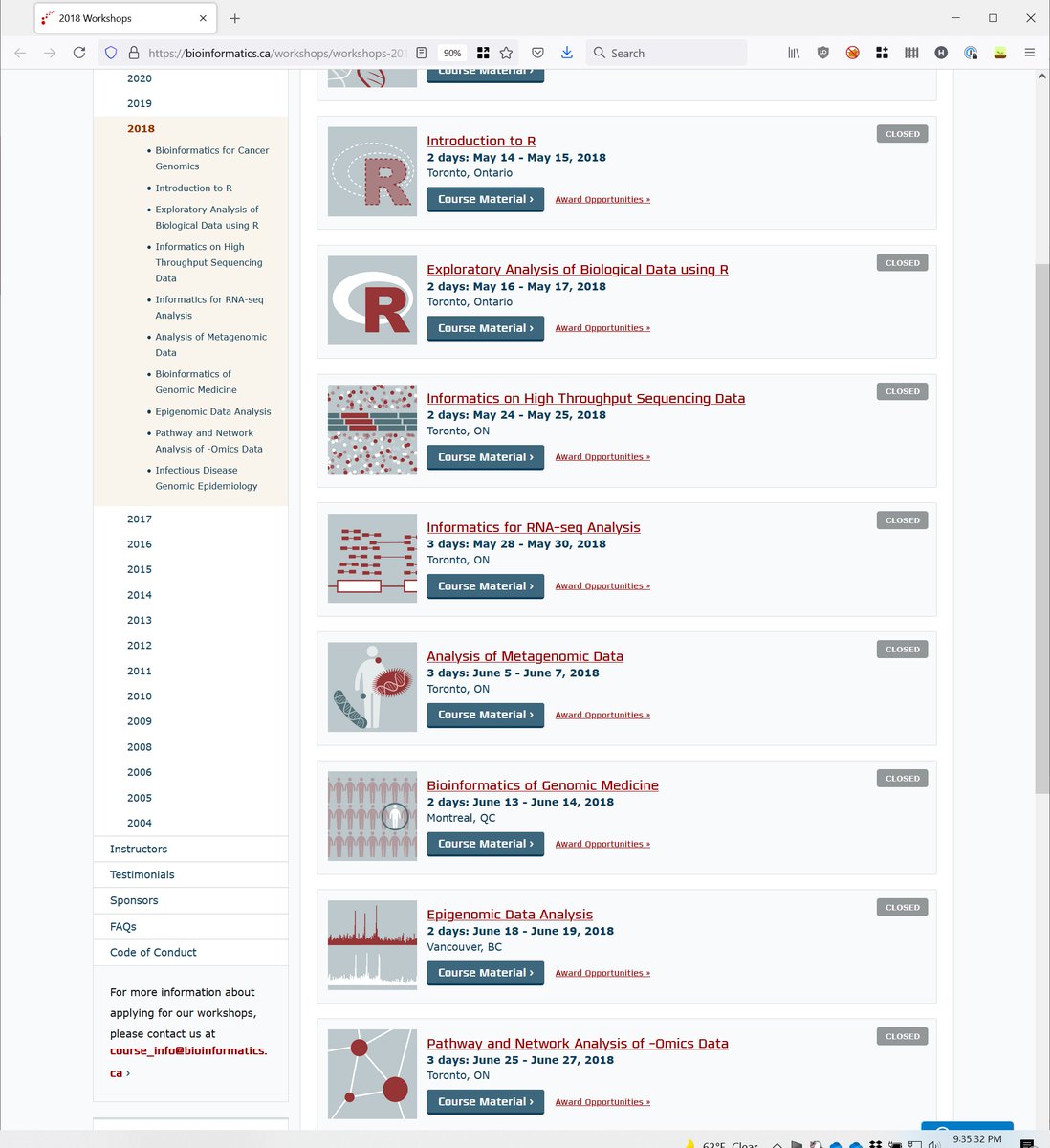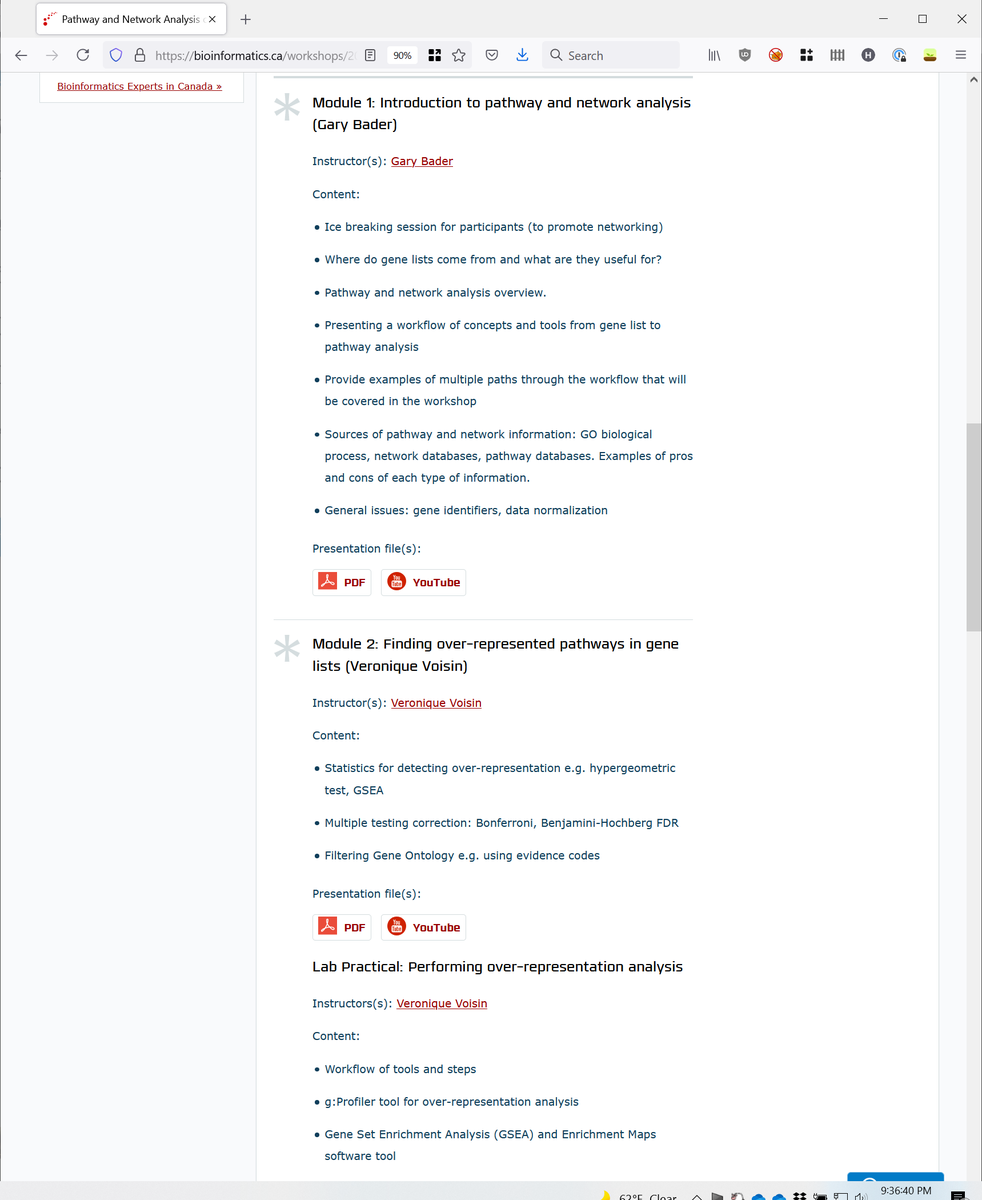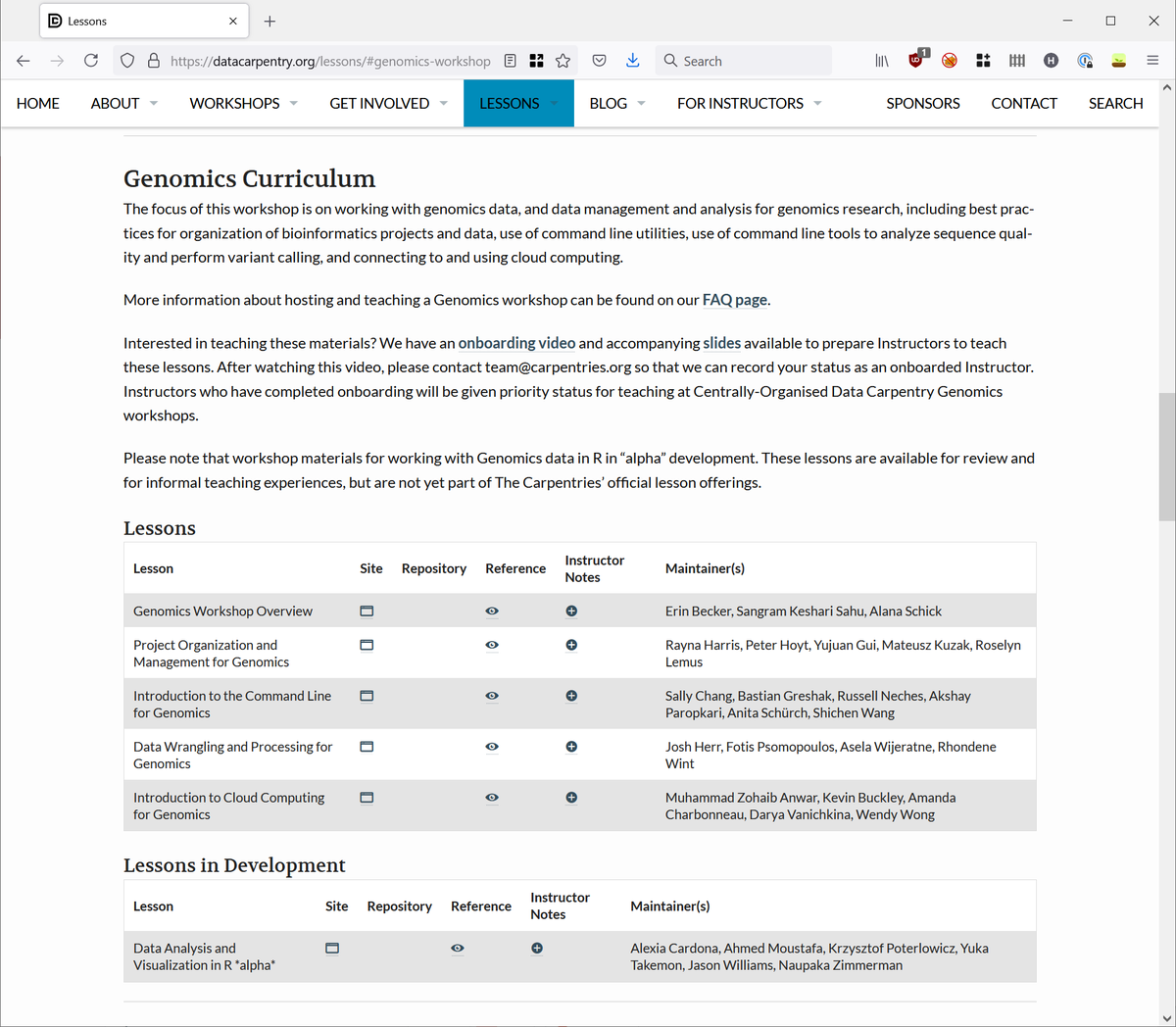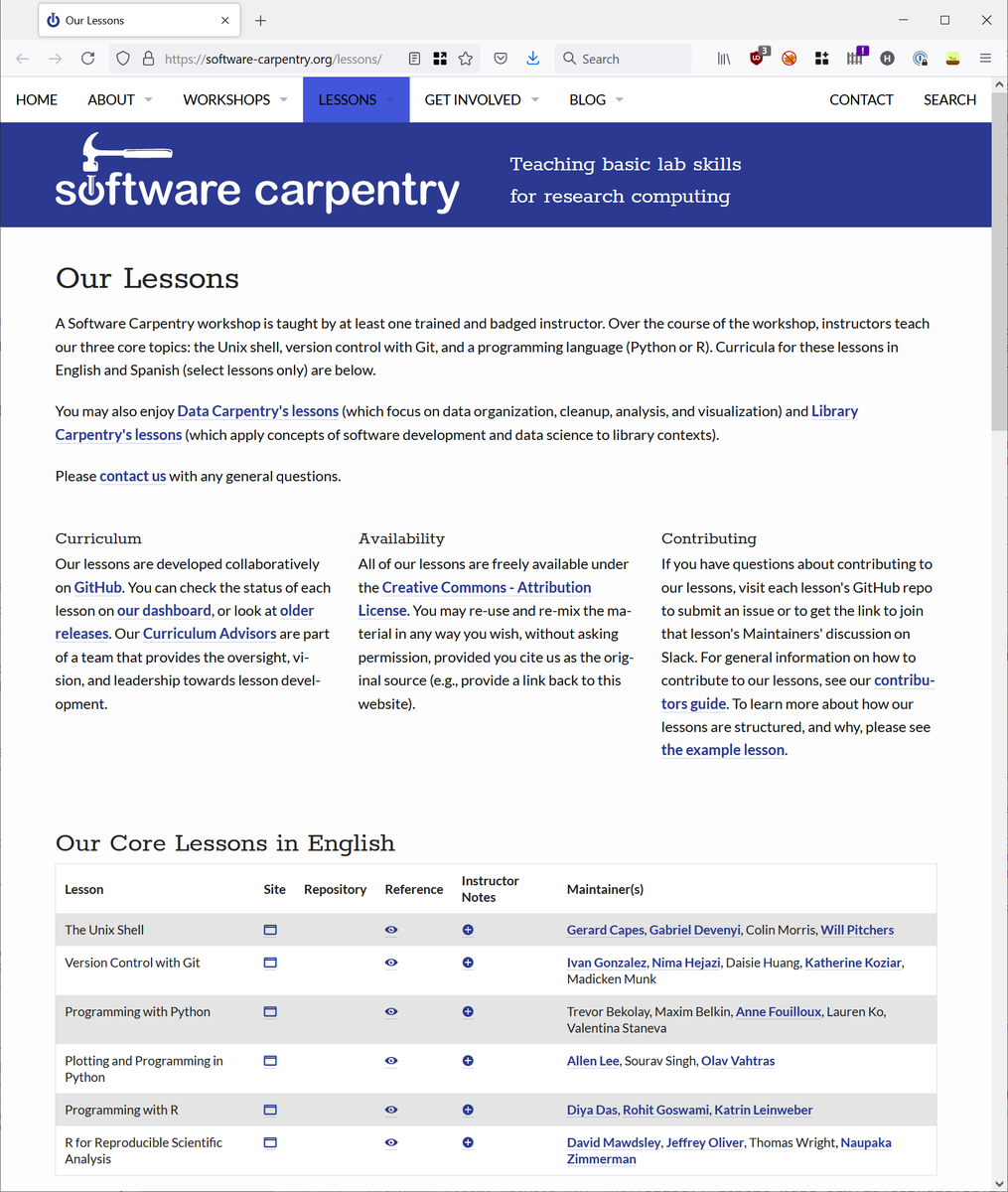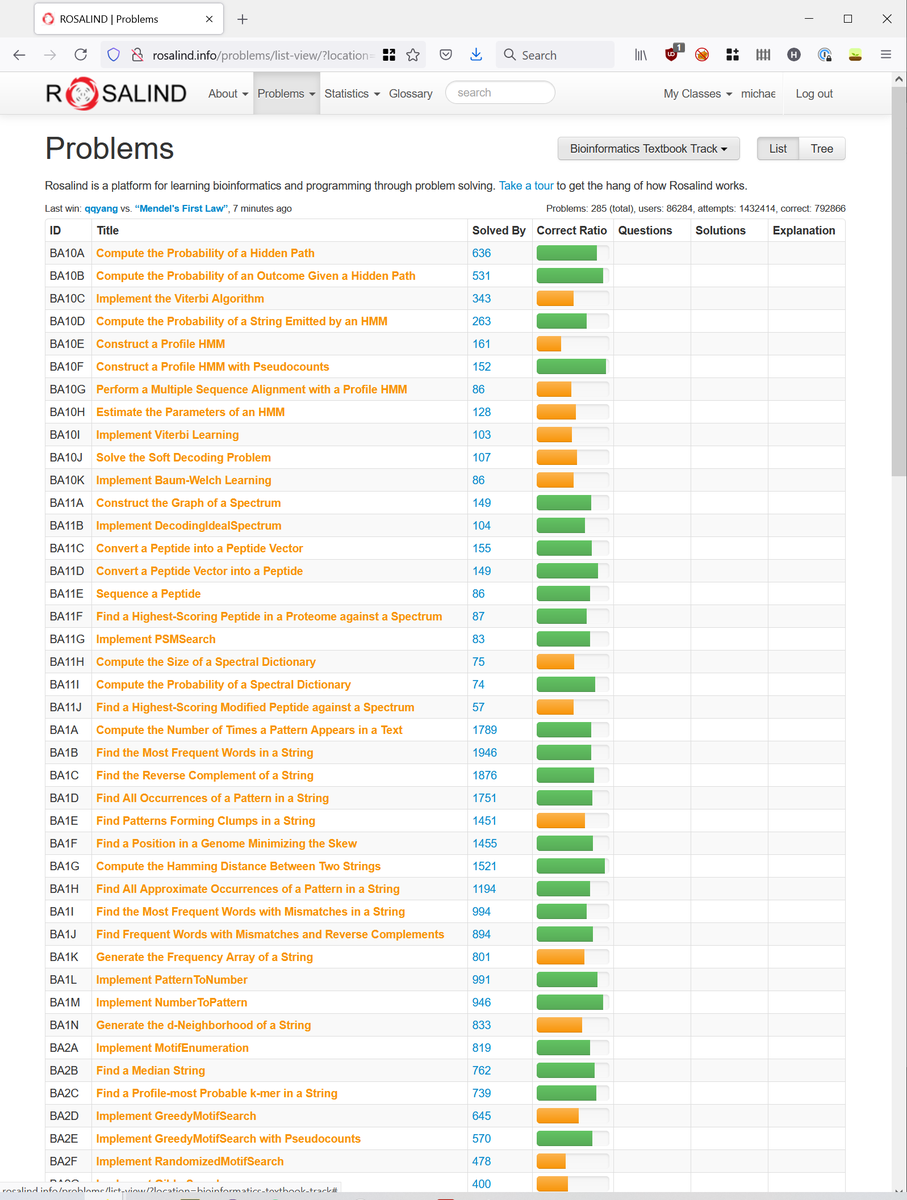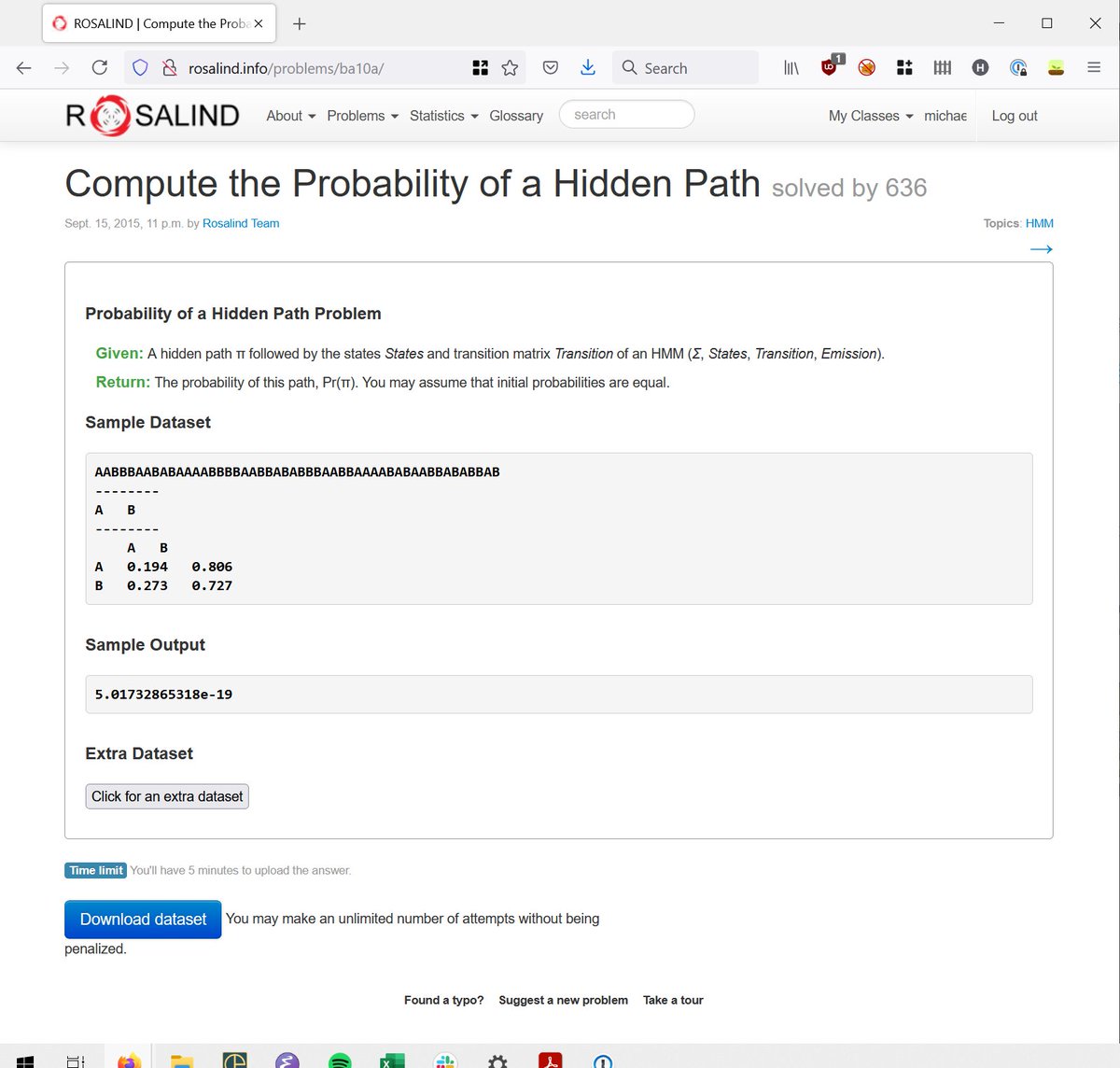1/Folks with mainly biology training sometimes ask me for resources that can help them learn bioinformatics. This short thread has my recommendations at various levels.
2/First, if you mainly want to know how to perform various sorts of analyses, highly recommend the @Bioinfodotca Canadian Bioinformatics Workshops. Individual workshops cover a number of different domains, some point-and-click, others w/ more command-line. https://bioinformatics.ca/workshops/ ">https://bioinformatics.ca/workshops...
3/Many require no prior bioinformatics or command-line knowledge. Some may expect a little familiarity with Linux and R. (And if you have none, you can get it from the Introduction to R course.)
4/Of course they are usually once a year (sometimes @cshlmeetings will have an additional omnibus course that combines several workshops). And not everyone can easily find the fees (although there are scholarships). That& #39;s why all the materials are also online year-round, free!
5/Here are the 2018 workshops (more recent ones are supposed to be online too but the files seem missing right now). In the "Pathway and Network Analysis" workshop (which I teach part of) you can find slide decks and YouTube videos for each lecture. https://bioinformatics.ca/workshops/workshops-2018/">https://bioinformatics.ca/workshops...
6/ @Bioinfodotca YouTube channel also collects all the videos in a central location. Some 2021 workshop videos already up. There& #39;s no substitute for the actual courses with instructor interaction & practical exercises but the videos should get you started. https://www.youtube.com/channel/UCKbkfKk65PZyRCzUwXOJung">https://www.youtube.com/channel/U...
7/Second, if you are going to be doing bioinformatics analysis on a regular basis you will be way more effective if you learn how to use your tools and organize your work better. I recommend @thecarpentries workshops and lessons. https://carpentries.org/ ">https://carpentries.org/">...
8/ @datacarpentry workshops teach you how to organize, manage, and analyze data, helpfully focused on applications to particular domains like genomics.
9/Software Carpentry workshops are focused more on tools for software development—including Python and R.
10/Third, to learn the details of computational biology algorithms and get ready to create your own, I recommend @PhillipCompeau and Pevzner& #39;s _Bioinformatics Algorithms: An Active Learning_ approach. Available as a book or interactive courses ($). https://www.bioinformaticsalgorithms.org/ ">https://www.bioinformaticsalgorithms.org/">...
11/First five chapters available online for free. https://www.bioinformaticsalgorithms.org/read-the-book ">https://www.bioinformaticsalgorithms.org/read-the-...
12/Lecture videos for the whole book available on YouTube. https://www.youtube.com/c/bioinfalgorithms/playlists">https://www.youtube.com/c/bioinfa...
13/They also have Rosalind, an awesome and free bioinformatics and algorithm problem-solving platform that you can develop your skills on. http://rosalind.info"> http://rosalind.info
14/There is no fourth step. If you can master that book, you& #39;re ready to join your local computational biology research group. Have fun!

 Read on Twitter
Read on Twitter